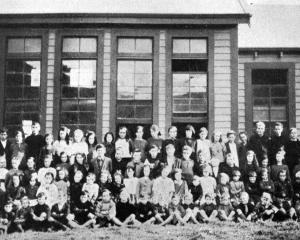
NZ Post is telling the story of Arthur Gordon, who lost both his legs in battle and went on to become an advocate for disabled servicemen, in its 2018 Back from the Brink stamp series.
The series is the fifth and final instalment of a five-year stamp and coin programme commemorating WW1.
The 10 commemorative stamps released yesterday tell the story of the final year of WW1, the toll it took on the servicemen and how they adapted on their return home.
NZ Post head of stamps and collectables Simon Allison said Mr Gordon was the central figure in this year's issue.
''Arthur was an heroic soldier who lost both of his legs while running a message back to headquarters. Struck by a shell, his legs were beyond saving and amputated. On Arthur's return home, he learnt to live as normal a life as possible with his prosthetic limbs. Despite his disability, Arthur never let his circumstances get him down. He became a passionate advocate for disabled soldiers and a lobbyist to the Government, seeking improvements in everything from the quality of artificial limbs to the rules for war pensions.''
Mr Allison said the stamps were a unique way to remember 1918, and a poignant reminder of New Zealand's contribution to a significant war on the other side of the world.
Other themes for the 10 stamps include the Hundred Days Offensive, Flu Pandemic, Armistice, Le Quesnoy, Demobilisation, Resettlement, Great Air War, Return of the Pioneer Battalion, and Rehabilitation.
New Zealand Post is also issuing two commemorative coins - a ¼oz gold proof coin which depicts loved ones expressing joy and relief at the soldiers' safe return home; and a 1oz silver proof coin depicting New Zealand soldiers scaling a ladder set against the ancient walls of Le Quesnoy, where they took the remaining Germans as prisoners.












